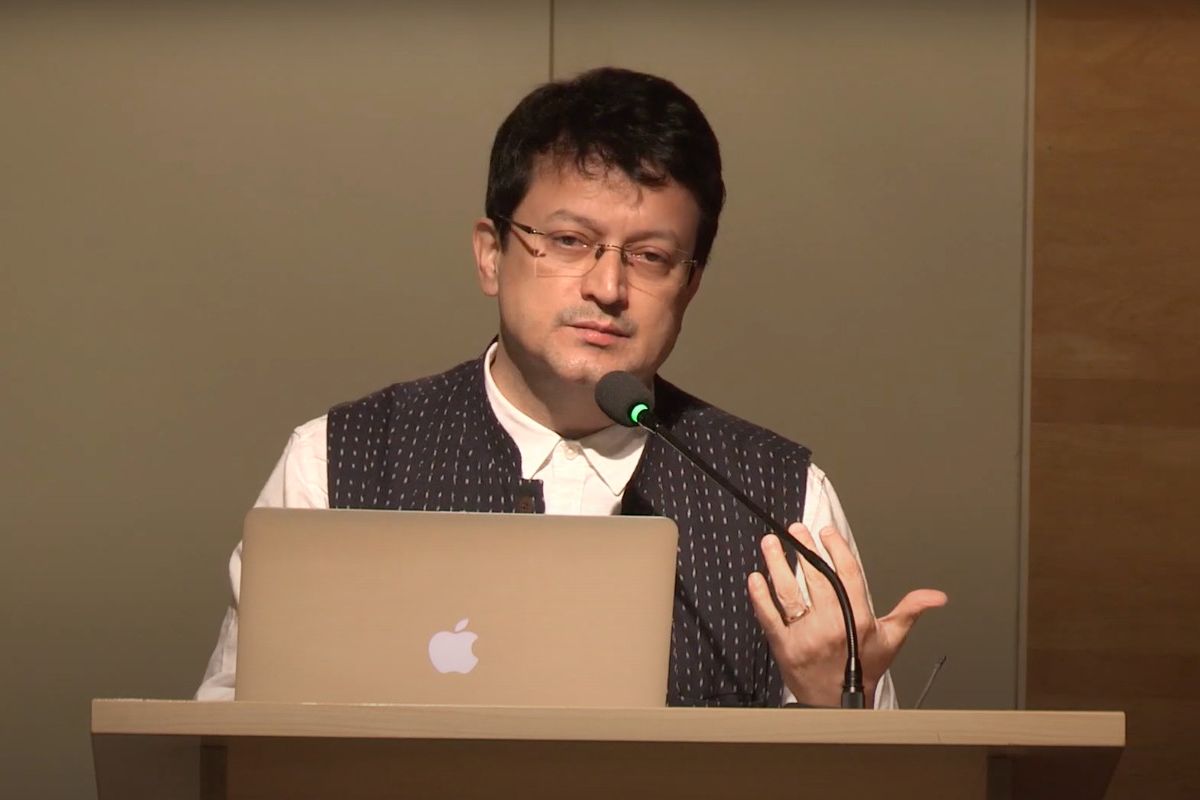When Ranjit Hoskote signed a petition in his native Mumbai two years ago protesting a talk by the Israeli consulate, the prominent Indian author and curator could hardly have envisioned triggering an identity crisis for one of the art world’s most renowned global exhibitions. Yet that is precisely the turmoil now erupting around Documenta, the prestigious German showcase of contemporary art held every five years after Hoskote quit its curatorial committee amidst accusations of anti-Semitism.
Hoskote's resignation has sparked recriminations and intense debate about what direction Documenta will take as it looks to recover from perhaps its biggest credibility crisis since being founded in 1955 to help rehabilitate post-war German cultural identity. At the centre sits the unlikely figure of Hoskote, a tabs-bursting poet and cultural theorist of the postcolonial experience in art. His decades-long opus exploring intersecting narratives of identity, injustice and belonging positioned him to preside as lead curator over what was tipped to be Documenta’s most groundbreaking edition ever.
That was until the German daily Süddeutsche Zeitung splashed headlines last month accusing him of endorsing anti-semitic stances. They highlighted a Boycott, Divestment, Sanctions (BDS) movement petition that Hoskote signed condemning a 2019 Mumbai talk equating “Zionism and Hindutva” – the ideology behind Hindu nationalism that critics blame for rising intolerance under Indian Prime Minister Narendra Modi.
"I am being asked to accept a sweeping and untenable definition of anti-Semitism that conflates the Jewish people with the Israeli state," Hoskote said in a statement.
While defending the petition aimed at spurring debate, the author insisted on his “highest regard” for the Jewish people and expressed his "deepest empathy with their historic sufferings and admiration for their glorious cultural achievements". But the German art establishment demanded Hoskote distance himself from BDS, which promotes boycotting Israel over alleged human rights abuses against Palestinians.
His refusal sparked immediate calls for his removal. German Culture Minister Claudia Roth threatened to withdraw state funding from Documenta 16 after the news was made public. The Israeli embassy in Germany also weighed in, stating that the exhibition was "not in a position" to select a curator for 2027. Several Indian cultural stalwarts, including authors Amitav Ghosh and Hari Kunzru, have commented on the allegations of anti-Semitism against Hoskote.
Yet rather than recant support for freedom of expression as he saw it, Hoskote opted for an exit that now risks sinking the whole endeavour – and his nomination had sparked such optimism. His resignation was followed by the resignations of two other members of the committee, Bracha Lichtenberg Ettinger and Gong Yan, for reasons relating to the Israel-Hamas conflict. The entire curatorial search committee for Documenta 16 has since stepped down in response to the recent resignations of its members.
Most importantly, his resignation has sparked a debate about artistic freedom and the limits of criticism of Israel in the country. While the conflict in Gaza has led to a significant increase in anti-Semitic incidents in Germany, it has also prompted discussions about Germany's historical guilt. Its staunch defence of Israel is leading to a ban on pro-Palestinian rallies and a growing list of writers, artists, and cultural figures being disinvited or forced to resign due to expressions of sympathy for the Palestinian people, which challenges the limits of artistic freedom and the freedom of speech in the country.
Ranjit Hoskote is a renowned poet, cultural theorist, and independent curator based in Mumbai. Born in 1969, he has authored 19 books, including five volumes of poetry and nine monographs on art and artists. Hoskote's work primarily focuses on discourses around Indian art history, contemporary politics, and cultural studies, exploring the role of intersecting narratives of art, culture, religion, and politics in the construction of identity in postcolonial nations. The artist’s lifelong distaste for dogma positioned Hoskote as the perfect outsider to present a truly radical Documenta focused on decolonization. Yet in rejecting calls to censor what ideas are fit for consumption, the accidental firebrand has sparked a virulent backlash threatening that dream.
Which side prevails remains uncertain as Germany again confronts its demons through art.








